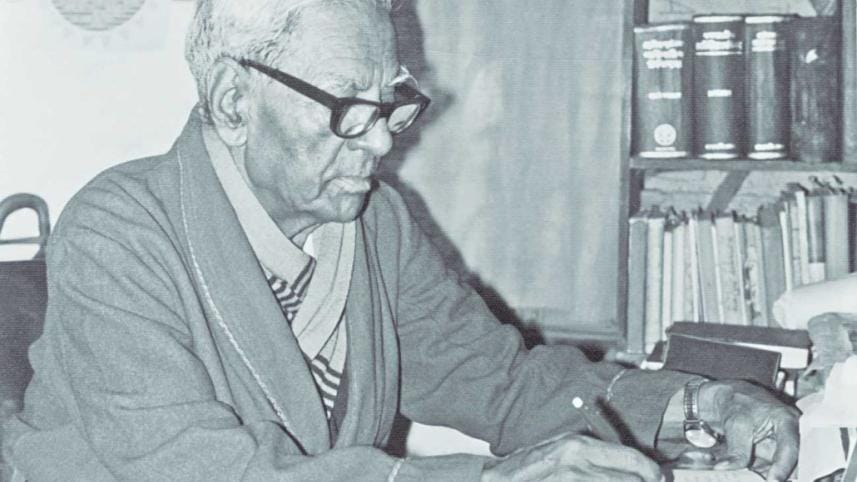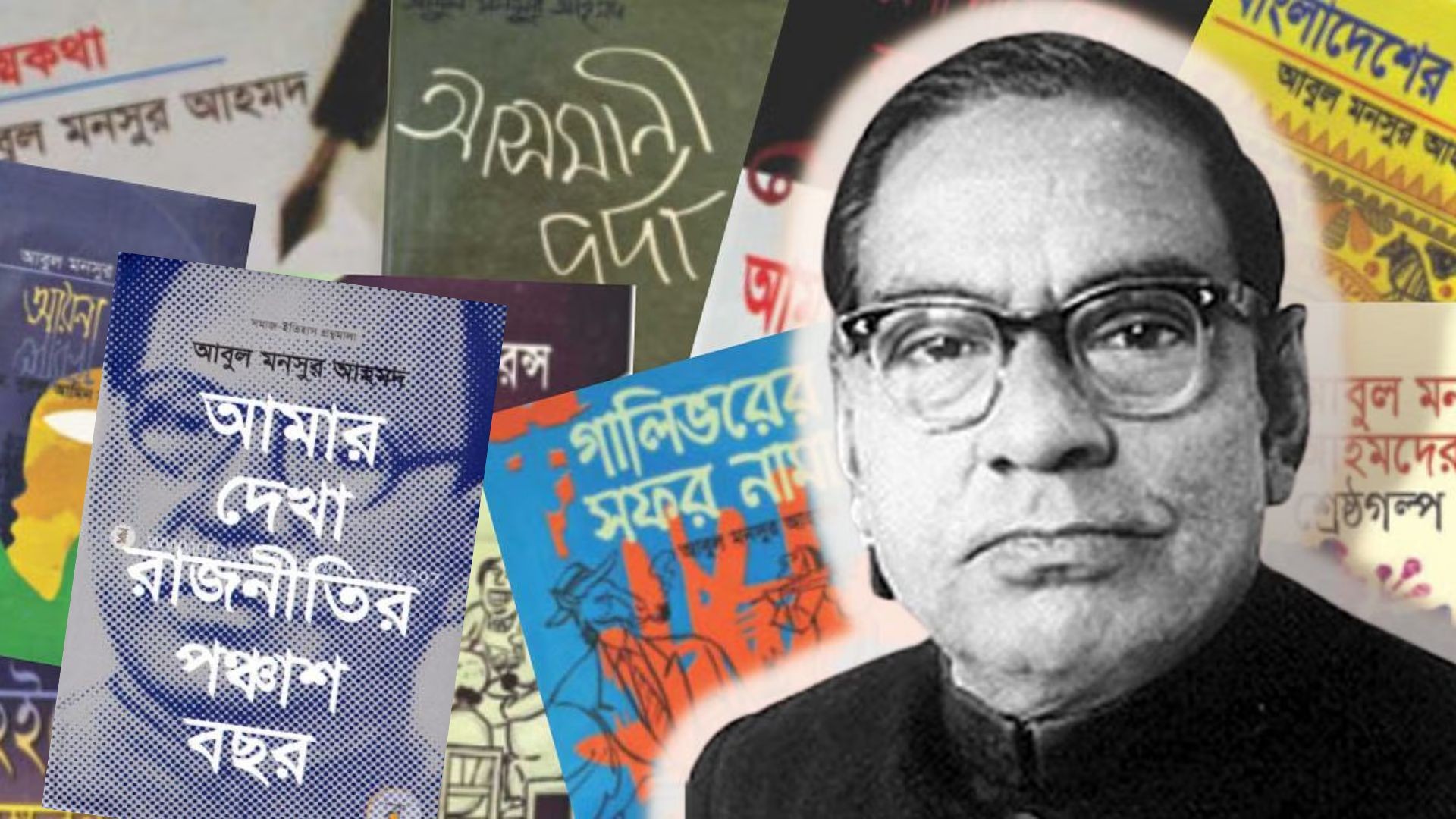A pioneer of modern journalism in South Asia

During my classes on "news gathering and writing for print media" with first-year university students, I occasionally ask them who Abul Mansur Ahmad was. Only a few of them reply: a prominent politician and the writer of Amar Dekha Rajnitir Ponchash Bochor—a political history-based autobiography. However, it is likely that they only learned about this book and its writer from university admission test guides. As a teacher of mass communication and journalism, it is fairly frustrating for me. A more disturbing phenomenon is that students don't have any idea about the early life of Abul Mansur Ahmad. This multi-talented person was a student of Jagannath College, now Jagannath University, the place I work at.
Abul Mansur Ahmad is well known for his glorious political and writing career. However, my observation is that his contribution to modern journalism is always overshadowed by his other identities. Nevertheless, he was a lighthouse of professional modern journalism in Bangla newspapers.
This visionary started his journalistic career in Dhaka after the First World War. His early write-ups were published in the monthly Shaogat. Then he joined as a full-time sub-editor in the weekly Soltan. Before joining as an editor at Krishak, he worked with another famous journalist and politician, Maulana Akram Khan, on the weekly The Mohammadi. At that time, Krishak was a progressive and people's interest-oriented newspaper promoting communal harmony. Sher-e-Bangla AK Fazlul Huq, an influential politician in the history of Bangladesh, funded this newspaper. However, Abul Mansur Ahmad resigned from this newspaper due to an ethical clash.
The versatile genius later founded Ittehad in 1947, another landmark in Bangla journalism. This newspaper, where he served as the editor, started its journey with the support of another Bangalee politician, Huseyn Shaheed Suhrawardy. Abul Mansur Ahmad exercised complete freedom in the newspaper. That is why he was successful in making it the first modern newspaper in Kolkata. He introduced many European and American standards of journalistic practices in newspaper operations, and the breakfast meeting is one of them.
Journalist Simon John Dring, a friend of Bangladesh during the Liberation War, trained many journalists in our country. I had the unique opportunity to work with him at Jamuna Television in 2013. At that time, he was working with an upcoming 24-hour news-based TV channel as an adviser.
Simon introduced breakfast meetings in the daily operations, which was very effective for running the newsroom. However, later I found out that Abul Mansur Ahmad had introduced this kind of meeting long ago in the Ittehad newsroom, which was a landmark decision in the history of journalism in this region. He also introduced dedicated pages for sports, literature, cinema, and the city, which was also a groundbreaking step at that time. Additionally, he ensured a proper working environment for the composers at the newspaper. He also increased the journalists' salaries to a considerable level at that time.
After the partition in 1947, he tried to shift Ittehad's operation from Kolkata to Dhaka. However, the government of Khawaja Nazimuddin denied his appeal several times. Not only that, at one stage, the Muslim League also banned the newspaper from coming to Dhaka by air. After a few years of fighting in Kolkata and Dhaka, the most modern and anti-communal publication of that time stopped its operation.
Abul Mansur Ahmad's journalistic career also ended with the closure of Ittehad. There is no doubt that it was a great loss for journalism in the Indian sub-continent. He is one of the pioneers in the history of journalism of the Bangalee Muslim community in the twentieth century.
The information in this article was taken from books: Abul Mansur Ahmad Smarokgrontho, Atmakatha, and Abul Mansur Ahmad er Jibondarshan o Sreejonbhuban.
Rahat Minhaz is assistant professor of mass communication and journalism at Jagannath University. He can be reached at minhaz_uddin_du@yahoo.com.
Views expressed in this article are the author's own.
Follow The Daily Star Opinion on Facebook for the latest opinions, commentaries and analyses by experts and professionals. To contribute your article or letter to The Daily Star Opinion, see our guidelines for submission.




 For all latest news, follow The Daily Star's Google News channel.
For all latest news, follow The Daily Star's Google News channel. 
Comments